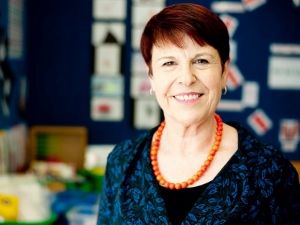

<p><img class=" alignright size-full wp-image-1372" src="http://schoolnewsnz.fastrackdev.com/wp-content/uploads/2015/03/SND13-wk4-Disabled_students-Louise_Green_300x225.jpg" alt="SND13-wk4-Disabled students-Louise Green 300x225" style="margin: 5px; float: right;" width="300" height="225" />NZEI Te Riu Roa backs the findings and recommendations of a new report that shows children with disabilities are more likely to live in poverty than other children.</p>
<p> <!--more--> </p>
<p>The CPAG report, It shouldn&#8217;t be this hard: children, poverty and disability, found that 15 per cent of children with disabilities live in households with incomes under $30,000, compared with 10 per cent of all children.</p>
<p>NZEI president Louise Green said this finding lined up with what teachers saw at school, as the extra care these children required had a heavy impact on the number of hours parents could work.</p>
<p>&#8220;It is hard enough for children to overcome the disadvantages of poverty when they don&#8217;t have a disability. Dealing with both is a heavy burden for the children, their families and the schools that are trying to give every child a quality education,&#8221; she said.</p>
<p>The report makes a number of recommendations around schooling, which NZEI supports.</p>
<p>&#8220;We agree with the recommendation that government acknowledge the role of Special Education Needs Coordinators in schools and accordingly fund a staffing entitlement directly through school budgets.</p>
<p>&#8220;The funding and allocation of services for disabled children also needs to be reviewed in partnership with the disability sector to identify shortfalls and find ways to improve service delivery in ways that are child-focused.</p>
<p>&#8220;NZEI has long been calling for more resources and support for children with special education needs, including children with disabilities. Kids are missing out on reaching their potential because the money is simply not there to support their schooling.&#8221;</p>

Since 2015, fewer students are completing secondary school, defined as remaining enrolled in education until…
As the country’s Indian population grows, so does demand for Indian languages like Hindi, Punjabi…
By promoting alternate qualifications, some schools may have undermined public trust in NCEA, explains an…
When young people immerse themselves in nature, they leave feeling physically, mentally, emotionally and spiritually…
Theatre is much more than performance. Deep skills can be developed across multiple curriculum areas,…
NZCER found generative AI tools are frequently used to support teaching and learning in primary…
This website uses cookies.